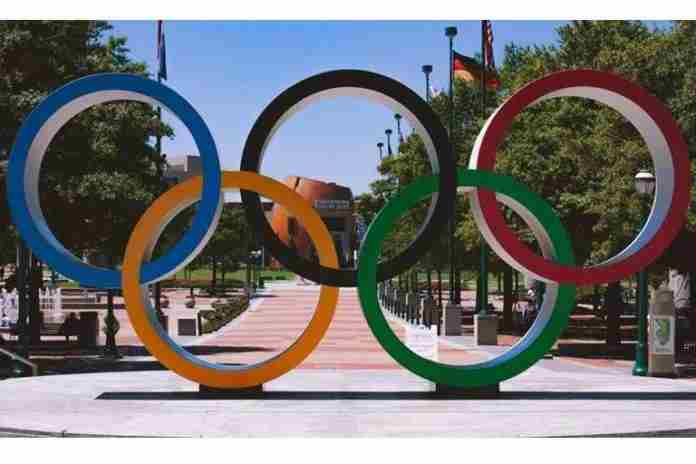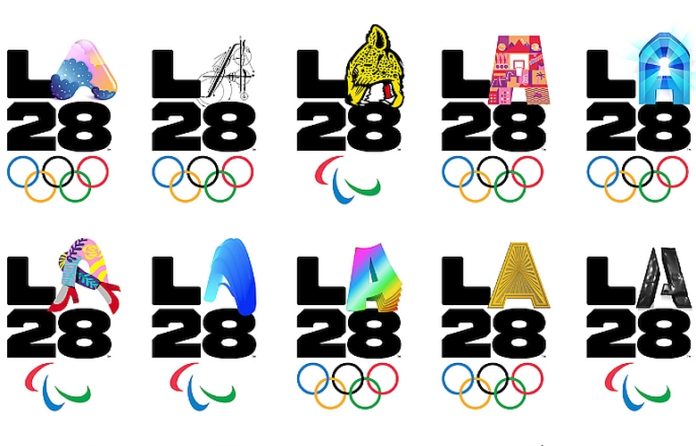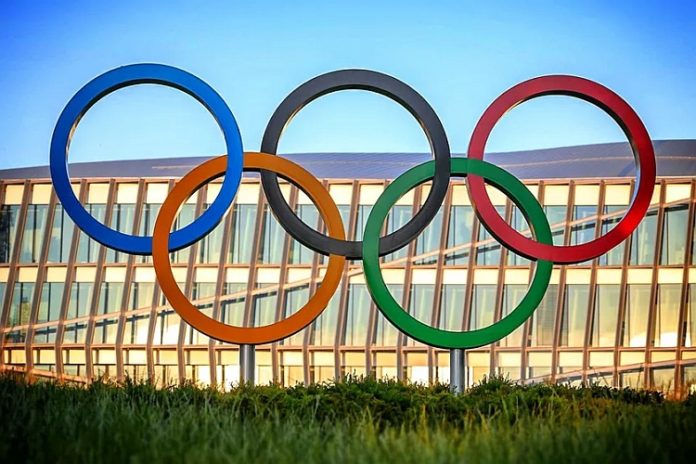★ The Sports Examiner: Chronicling the key competitive, economic and political forces shaping elite sport and the Olympic Movement.★
★ To get the daily Sports Examiner Recap by e-mail: sign up here! ★
≡ IOC PRESIDENTIAL ELECTION ≡
The International Olympic Committee will choose its 10th President at the 144th IOC Session in Greece in March 2025, its first such election in 12 years. Seven members are running and their manifestos have been published.
And the candidate statements take on extra importance in view of the IOC’s regulations for the 30 January 2025 in-person presentations that state:
“The presentation by the candidates must reflect the content of their respective Candidature Document published on the IOC website.”
So, where do the candidates stand – and differ – on key issues, ahead of the 30 January presentations (with, by the way, no questions allowed)?
TSX profiled the statements – one by one – of Prince Feisal Al Hussein (JOR) and Sebastian Coe (GBR) here; of Kirsty Coventry (ZIM), Johan Eliasch (GBR) and David Lappartient (FRA) here, and of Juan Antonio Samaranch (ESP) and Morinari Watanabe (JPN) here.
Now let’s compare them on some of the hot-button issues that ran through most, or all, of the manifestos. All of the statements emphasized the need for the IOC to adhere to good governance, emphasize sustainability, make a more meaningful outreach to engage young people and to responsibly employ artificial intelligence.
But there were other, more direct issues that are high priorities not only for the Olympic Movement, but especially the 111 members of the IOC who will select a new leader for an eight-year term from 2025-33 (or maybe not).
Let’s take a look at the candidate files and some of the hot-button issues identified by the candidates. First, a quick assessment of the statements (in alphabetical order):
● Al Hussein: Three primary themes, fairly concrete ideas, excellent list of priorities, wants to create an “Agenda 2036.”
● Coe: Five-part theme, with a startling offer: “My focus is on embedding transformative change over the next four years after which I will put myself forward for re-election.”
● Coventry: Deep experience with the IOC and as a government minister, but was less direct about specific changes. Identified technology as key to new audiences and less costs.
● Eliasch: Named to the IOC only this year, he posits his enormous business success and experience as what is needed to drive the Movement forward.
● Lappartient: Offers his experience heading cycling and the French NOC as showcasing a steady, fair, collaborative approach. Offers a page of 30 specific pledges and wants to create an “Agenda 2036.”
● Samaranch: The most concrete statement, with 40 action pledges across six themes, including specific new support for the members.
● Watanabe: A wild proposal to create a 50-sport Olympic Games, with 10 sports per host city and taking place 24 hours a day to create a truly worldwide audience. He also outlines a complete governance change, with a bicameral approval process.
There were several areas which one or more candidates made – or hinted at – specific proposals, and these areas could be deciding factors for the IOC members. Who said what?
A more active role for the IOC members:
All seven mentioned this area, and there was a clear reflection of member discontent with the very strongly-controlled management of the IOC during the term of Thomas Bach (GER). But the statements varied in approach:
● Al Hussein: Increase the age limit from 70 to 75, and “[g]ive every IOC Member a role to play in defining and executing policy.” Wants to create a “Members Department” for better communications.
● Coe: “I will ensure decision-making in the Movement clearly sits with the members, ensuring greater accountability, transparency and efficiency.”
● Coventry: “I pledge to bring all members together to assess the current state of the Olympic Movement and collaboratively define the objectives for the short, medium, and long term.”
● Eliasch: “[E]very voice will be heard, no matter how long you have been a member for.”
● Lappartient: “In my discussions with Members, I have been confronted by a burning desire to continue to participate in decisions and, in particular, those that have to do with the Olympic Games.” Nothing more specific.
● Samaranch: Specific proposals to establish a “Member’s Office” with direct communications and support for speeches, statements and appearances, and closer relationships with governments, including diplomatic passports. He also wants to extend the retirement age to 75.
● Watanabe: Creation of a “House of Representatives” made up of the presidents of the International Federations and the National Olympic Committees, and a “Senate” of the IOC members: “The proposals of the IOC Executive Board are discussed in the House and then decided by the Senate.”
The Olympic Games of the future:
Another major theme, with specific approaches to the future of the Olympic Games, most couched in careful language to ensure a consultative approach with the IOC membership.
● Al Hussein: Noted that climate change requires looking at changed Olympic Games dates “so more host cities can bid,” outside of the currently mandated July-August period.
● Coe: “I will create greater opportunities for these two key stakeholders to work together, and with the International Paralympic Committee, to strengthen our sporting interdependencies throughout the full Olympic cycle.”
● Coventry: “Actively involving IFs means initiating a new approach by which IFs would be in a leading position when it comes to their sport at the Games. It also means that IFs would be in a better position to draw full benefit of increased revenues generated by this new approach, including the opportunities offered by the Olympic Qualifiers, the Olympic E-Sports Games and the exploitation of AI and digital engagement activities.”
The IFs will absolutely be in favor of more money, but she also notes: “I will rely on our collective expertise to thoroughly explore the review of the Sports program.”
● Eliasch: He was even clearer than Coventry about the Games and sports: “I will initiate a review of all sports and formats to maximise their attractiveness to fans” and “This review could consider both the inclusion of new disciplines and the continuing viability of others.” Ominous?
A new content approach: “We must use this to create more ‘star-powered’ entertainment features – not only for the opening and closing ceremonies, but throughout the Games” and “Relay competitions with able-bodied and Para athletes teaming up should be explored, looking for new formats that will allow viewers to focus on the extraordinary abilities – not disabilities – of all participants.”
Citing his business success, he posits, “[W]e can deliver future editions of the Games more efficiently, at significantly less cost – and at an even higher standard of quality.”
● Lappartient: He urged caution on continuing to add sports: “We are receiving numerous bids again, but we should avoid an XXL approach.” Also, it would be “worthwhile to better define the conditions for adding new sports to the programme of the Olympic Games (universality, quotas, Olympic revenue, etc.) and integrating new disciplines of sports already on the Olympic programme.”
● Samaranch: “Remain flexible and open to adjusting our calendar to make hosting the Games more accessible for all regions” and “Excessive widespread Games may affect the authenticity and communal spirit of the Olympics, where the Olympic Village serves as the cornerstone of the Games experience and brand.” He advocates a review of service levels across the Games to balance costs with “Olympic Standards.”
● Watanabe: “Stage the Olympic Games in five cities from the five continents, in the same period of time.”
Selection of the Olympic host cities/regions/countries:
As a result of the Salt Lake City bidding scandal that broke in 1999, member visits to candidate cities were abolished, new age limits adopted and Bach later pushed through a new selection process based on discussions and evaluations of Olympic and Winter “Future Host Commissions,” with the members asked only to confirm their recommendations.
This eliminated the losers in a winner-takes-all process and reduced the bid cost by tens of millions of dollars. But it also took away a key aspect of IOC membership. Some want to change that:
● Al Hussein: Wants the members to “decide the electorate for future host cities.”
● Lappartient: Proposed to strengthen the role of IOC Members in the decision-making process on host cities, and also wrote “we need to think about a balance between the continents for future hosts” recommending taking the Games to Africa (something he is doing in cycling).
● Samaranch: Was the clearest about change: “Members should decide on the Host City selection.”
● Eliasch: Chimed in on locations, stating “The risks can be managed … the prospect of future editions in Africa, India and the Middle East should excite and energise us. Let’s make it happen.”
Coming tomorrow in part II: ideas for revenue generation, what to do about broadcasting, athlete support, women, doping and more. Stay tuned.
Rich Perelman
Editor
¶
★ Receive our exclusive, weekday TSX Recap by e-mail by clicking here.
★ Sign up a friend to receive the TSX Recap by clicking here.
★ Please consider a donation here to keep this site going.
For our updated, 885-event International Sports Calendar for the rest of 2024, 2025 and beyond, by date and by sport, click here!

























